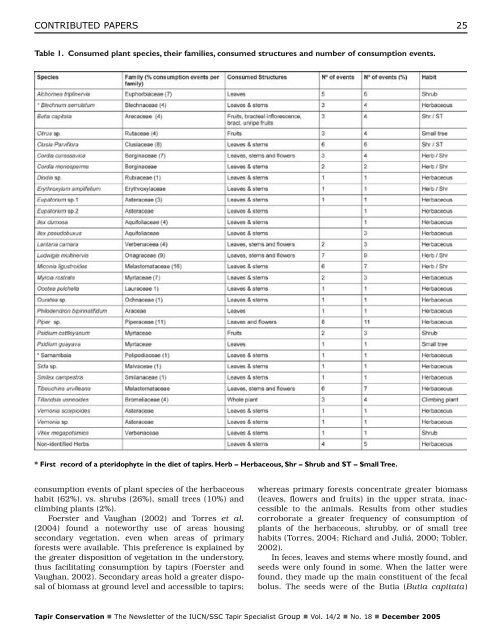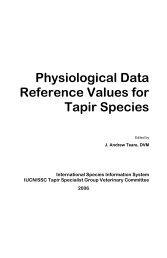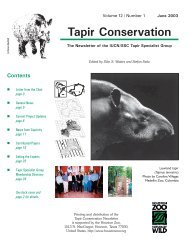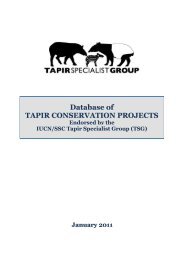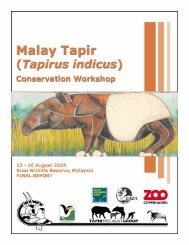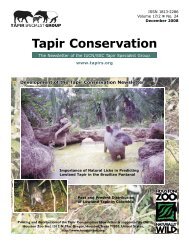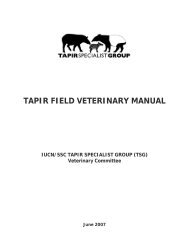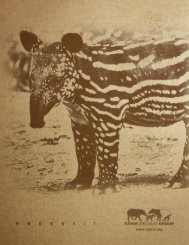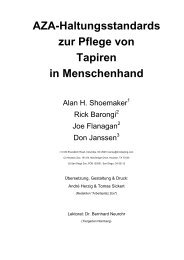Tapir Conservation - Tapir Specialist Group
Tapir Conservation - Tapir Specialist Group
Tapir Conservation - Tapir Specialist Group
You also want an ePaper? Increase the reach of your titles
YUMPU automatically turns print PDFs into web optimized ePapers that Google loves.
CONTRIBUTED PAPERS<br />
Table 1. Consumed plant species, their families, consumed structures and number of consumption events.<br />
* First record of a pteridophyte in the diet of tapirs. Herb – Herbaceous, Shr – Shrub and ST – Small Tree.<br />
consumption events of plant species of the herbaceous<br />
habit (62%), vs. shrubs (26%), small trees (10%) and<br />
climbing plants (2%).<br />
Foerster and Vaughan (2002) and Torres et al.<br />
(2004) found a noteworthy use of areas housing<br />
secondary vegetation, even when areas of primary<br />
forests were available. This preference is explained by<br />
the greater disposition of vegetation in the understory,<br />
thus facilitating consumption by tapirs (Foerster and<br />
Vaughan, 2002). Secondary areas hold a greater disposal<br />
of biomass at ground level and accessible to tapirs;<br />
<strong>Tapir</strong> <strong>Conservation</strong> n The Newsletter of the IUCN/SSC <strong>Tapir</strong> <strong>Specialist</strong> <strong>Group</strong> n Vol. 14/2 n No. 18 n December 2005<br />
25<br />
whereas primary forests concentrate greater biomass<br />
(leaves, flowers and fruits) in the upper strata, inaccessible<br />
to the animals. Results from other studies<br />
corroborate a greater frequency of consumption of<br />
plants of the herbaceous, shrubby, or of small tree<br />
habits (Torres, 2004; Richard and Juliá, 2000; Tobler,<br />
2002).<br />
In feces, leaves and stems where mostly found, and<br />
seeds were only found in some. When the latter were<br />
found, they made up the main constituent of the fecal<br />
bolus. The seeds were of the Butia (Butia capitata)


